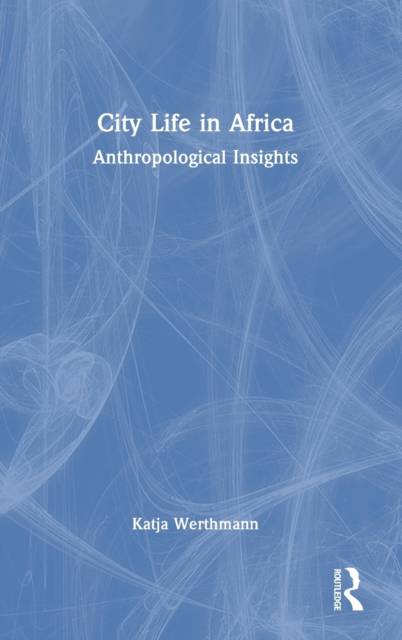
- Afhalen na 1 uur in een winkel met voorraad
- Gratis thuislevering in België vanaf € 30
- Ruim aanbod met 7 miljoen producten
- Afhalen na 1 uur in een winkel met voorraad
- Gratis thuislevering in België vanaf € 30
- Ruim aanbod met 7 miljoen producten
Omschrijving
This book introduces readers to the anthropology of urban life in Africa, showing what ethnography can teach us about African city dwellers' own notions, practices, and reflections.
Social anthropologists have studied city life in Africa since the early 20th century. Their works have addressed a number of questions that are relevant until today: What happens to rural people who move to the city? What kinds of livelihoods do they pursue? How does city life affect moralities and practices connected with gender roles, marriage, parenthood, and intergenerational relations? In which social situations are ethnic and other collective identifications relevant? How do people make a home in the city? What forms of authority and leadership become relevant in urban governance? How do people talk about city life? This book asks what anthropologists have come to learn about Africans' views on city life. It provides a critical acclaim of ethnographies in English, French, and German and elucidates anthropology's contribution to understanding city life in Africa. It highlights the significance of female, African and Diaspora scholars for an emerging urban anthropology of Africa. The chapters are organized according to everyday activities of city dwellers: moving, connecting, governing, working, dwelling, and wayfinding.
The book will be an essential read for students and researchers of social anthropology, African and urban studies, but also for professionals in research and development organizations, thinktanks, and other institutions concerned with urban Africa.
Specificaties
Betrokkenen
- Auteur(s):
- Uitgeverij:
Inhoud
- Aantal bladzijden:
- 222
- Taal:
- Engels
Eigenschappen
- Productcode (EAN):
- 9780367699246
- Verschijningsdatum:
- 27/07/2022
- Uitvoering:
- Hardcover
- Formaat:
- Genaaid
- Afmetingen:
- 156 mm x 234 mm
- Gewicht:
- 503 g

Alleen bij Standaard Boekhandel
Beoordelingen
We publiceren alleen reviews die voldoen aan de voorwaarden voor reviews. Bekijk onze voorwaarden voor reviews.











